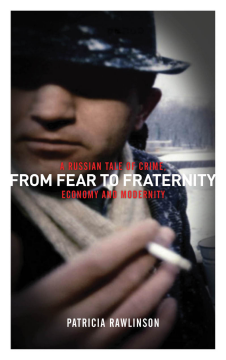
Additional Information
Book Details
Abstract
Organised crime makes good copy. Gangsters, shoot-outs and mob meetings are a staple of TV shows and media reports tend to glamorise the criminal underworld. The 'threat' from organised crime has been a high-profile concern in Western Europe and the US since the 1930s.
This being the case, the recent emergence of Russian and Eastern European organised crime has led to high-profile efforts to combat the new 'threat', with little understanding of what it entails. Patricia Rawlinson argues that burgeoning crime rates result not only from the failures of communism, but also from the problems of free market economies.
Drawing on interviews with members of the Russian criminal underworld, she argues that organised crime provides us with a barometer of economic well-being, both for Russia and for any neoliberal market economy.
'Rawlinson's intriguing and even chilling analysis is presented in a highly readable and lively style making this an impressive piece of work'
Dr Maurice Punch, Visiting Professor, London School of Economics and King`s College London
'Challenges the orthodox understandings of Russian organised crime and tears away the political agendas that misrepresent Russia's experience of capitalism and socialism, making a mockery of Fukuyama's image of an end of history'
Boris Kashnikov, Professor at the Moscow Higher School of Economics
Table of Contents
| Section Title | Page | Action | Price |
|---|---|---|---|
| Cover | Cover | ||
| Contents | vii | ||
| Acknowledgements | viii | ||
| Introduction | 1 | ||
| 1. Telling Tales | 7 | ||
| 2. Crime-Time Stories | 22 | ||
| 3. From Bandits to Bolsheviks to Brezhnev | 45 | ||
| 4. Shadowlands: The Gorbachev Years | 70 | ||
| 5. Comrade Capitalists: The Tale of Crime and Economy in the ‘New’ Russia | 96 | ||
| 6. The Sovietising of Western Society | 136 | ||
| 7. From Fear to Fraternity | 169 | ||
| Notes | 181 | ||
| Index | 208 |
